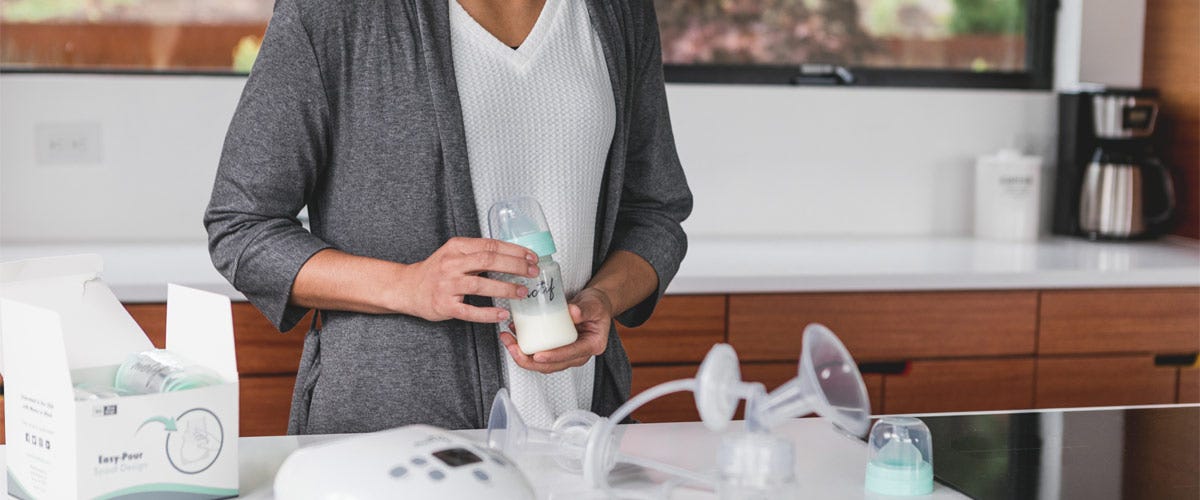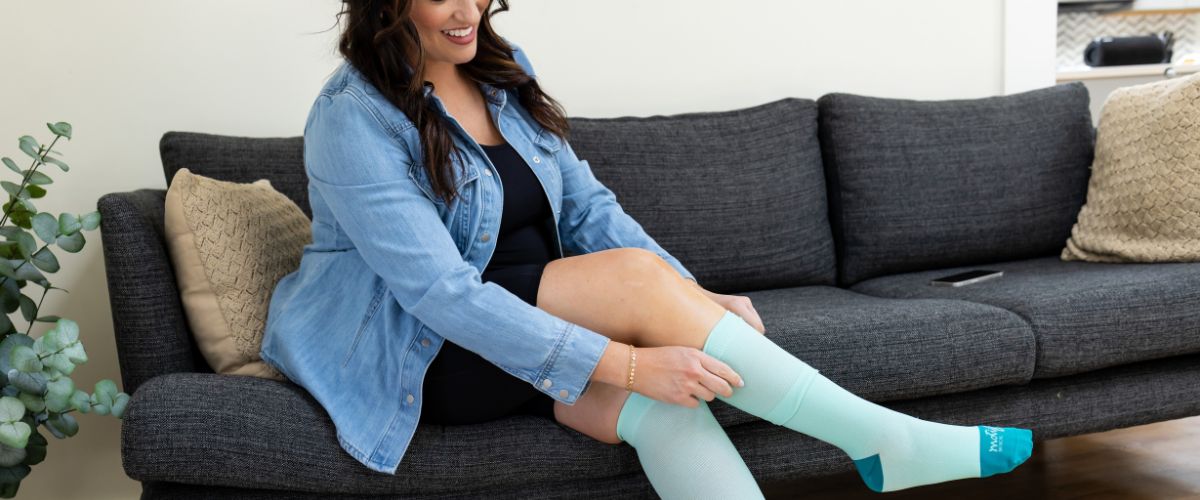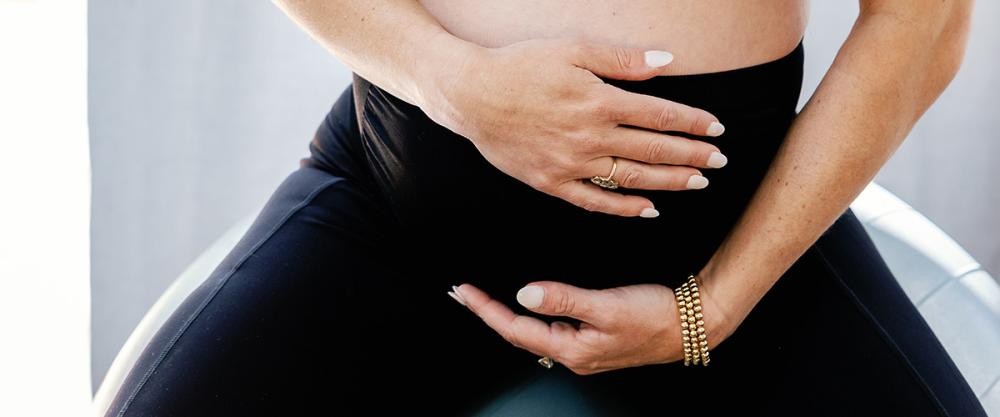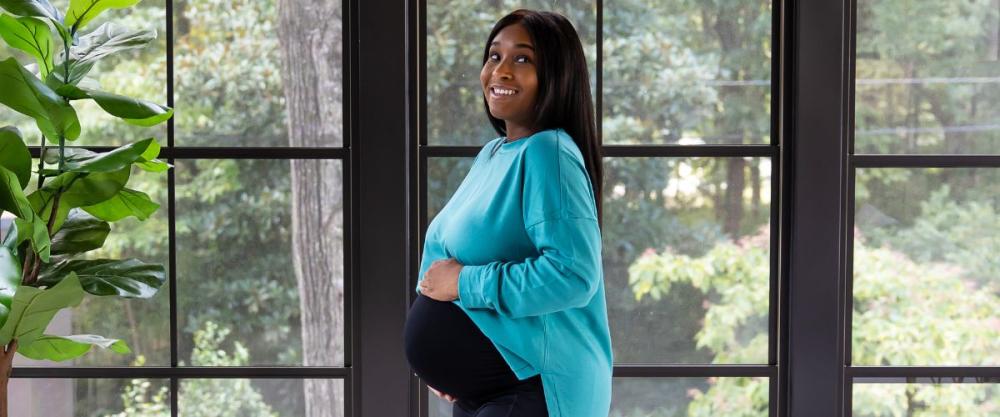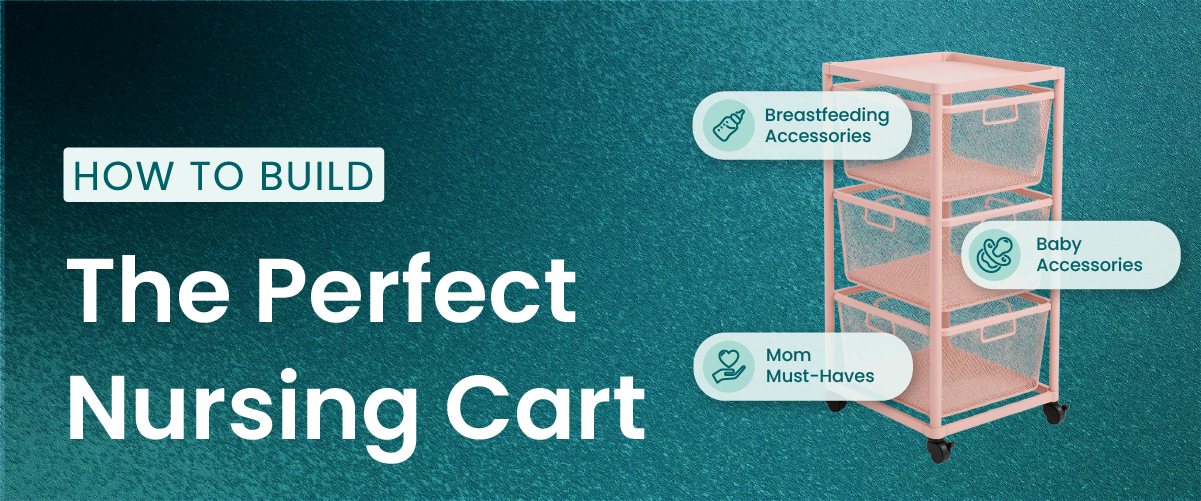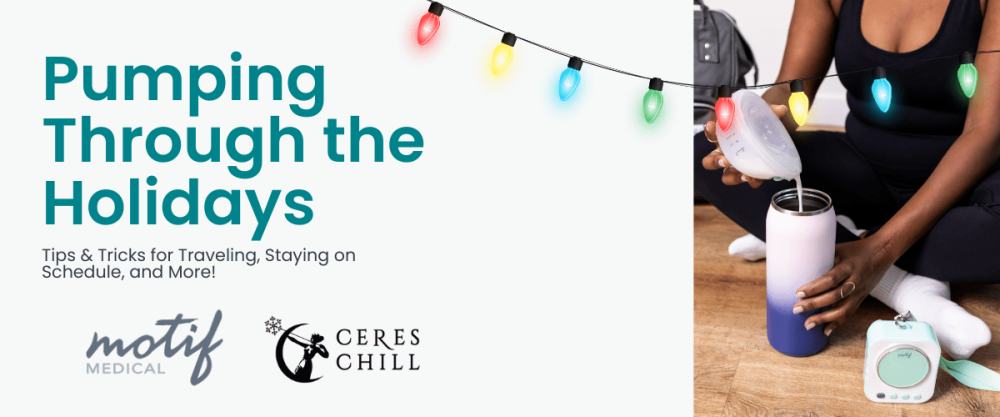The immediate postpartum period is such an important time for you and baby to bond and get to know each other for the first time. Your main priorities over the first couple of weeks after baby arrives is to rest your body and feed your baby. So what are the best ways to prepare for that? What recovery essentials should you have on hand to make those things easier?
Pack a Postpartum Care Hospital Bag
When you're packing your hospital bag in preparation for your baby's birth, don't forget to pack for the postpartum! You'll want to bring comfortable clothes to wear while you're there. Clothes don't usually fit quite right after delivery, so bring things that are stretchy and loose—yoga pants, leggings, and long shirts are some favorites, as well as a comfy robe and slippers for at night. A nursing bra and nursing pillow is a must for finding comfortable positions to use for breastfeeding your little one, so remember to bring those with you, too!
I also recommend bringing your own toiletries. That first shower after you've had a baby can feel so good and it's nice to have your own shampoo and conditioner. Bring your hair dryer, hair care supplies, and make up because most families will take a special “going home” picture before they leave the hospital.
Most birthing centers will provide you with mesh underwear, postpartum pads, as well as ibuprofen, stool softeners, and other medications. Be sure to bring your own mesh undies if you don't want to rely on the ones from the hospital.
Resting & Feeding Your Baby
Once you get home, the only things you need to think about are resting and feeding your baby. Rest is not something that comes easily to many of us, so spend some time during your pregnancy thinking about what rest means to you and how you rest best. You are going to want to create an atmosphere in your home that will allow you to rest for the first couple of weeks. Set up snack stations for yourself around the house wherever you think you're most likely to feed the baby. Make sure you have a water bottle nearby so you can care for yourself while caring for your baby. Hopefully one of your friends or a family member will set up a meal train for you, but if they don't definitely set one up for yourself.
Nourishing your body as it recovers from the work of pregnancy and delivery and while it is making milk to feed your baby is necessary, but you should not be the one doing that food prep. Let people know if you have any dietary restrictions or special food needs and try to get at least 2 weeks of food covered by others. You can put a cooler on your porch or front step to make drop off easier. Some new parents can feel the need to be “host” when people bring food and this drop off system takes away that pressure.
It Takes a Community
When you are ready for people to come visit, put a sign on your front door announcing all of baby's fun details—when they were born, how much they weighed, how long they were, etc. That way you aren't having to repeat the same information to everyone! That welcome sign is also a great way to remind visitors wash their hands when they get in and to not come in if they are sick. I also like to use the sign as a way to ask everyone to do something helpful while they're at the house. You can hang a “To-Do List for Helpers” in your house that lists the chores you would appreciate help with: it could be washing dishes, doing some laundry, vacuuming the floors, or taking out the trash. Most people want to help, but aren't sure what to do and this is a wonderful way to provide them with the opportunity to be helpful.
New Mom Self Care
The first few weeks postpartum can be hard mentally and emotionally, so make sure you are doing things to nourish your soul. Spend some time thinking about what brings you joy, what makes you calm, and make a list of those things. If it's music, make a few playlists you can turn on if you're having a hard day. If you like podcasts or audiobooks, go ahead and download some for easy access. If it's movement, write down some of your favorites so you can inspire yourself on the challenging days. Try to create some options for yourself that don't rely on technology, as media can be distracting and not usually in a good way.
Nourishing your baby is going to be the most time consuming part of your first couple of weeks. Babies eat so often! When you're setting up feeding stations around your house, do your best to keep things within arms reach for yourself. You'll want the snacks I mentioned above, and also burp cloths, diapers, wipes, nipple balm, gel pads for sore nipples, a nursing pillow, and maybe the Hakka or your breast pump.
Always remember that every baby is different! Some eat frequently for short amounts of time and some nurse for longer but less often. Have a list of people you can call if you run into any problems—such as your pediatrician, a lactation consultant, your chiropractor or even a friend to talk to—they all have their place in helping you transition to the postpartum and nourish yourself and your new baby.
About the Author
Rebekah Mustaleski is a Certified Professional Midwife with Roots & Wings Midwifery in Knoxville, TN, where Rebekah promotes evidence-based maternity care for families seeking an out of hospital delivery. She is working to improve maternal outcomes during the childbearing year and to promote a sustainable business model for midwifery practices across the country. Rebekah is co-owner of Roots & Wings Midwifery, LLC as well as Treasurer for the Tennessee Midwives Association.



